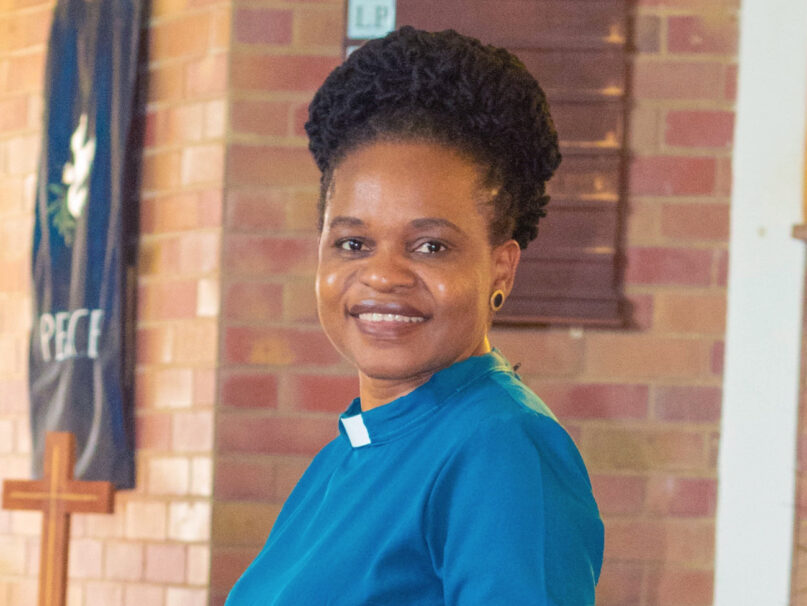NAIROBI, Kenya (RNS) — The All Africa Conference of Churches has elected its first woman as president of the ecumenical organization, which represents some 200 million Christians on the continent.
On Nov. 22, the Rev. Lydia Chituku Neshangwe, a Presbyterian minister, became the first woman to lead the 60-year-old organization, which consists of Protestant, Orthodox and Indigenous African churches.
“This is a most humbling call which challenges me to give my gifts and talents in what is a journey of discovery for both myself and the AACC community,” Neshangwe told Religion News Service. “It affirms to me that when God calls, God has no gender, age or class.”
Neshangwe, 50, hopes her election will encourage women in Africa at a time when fewer women on the continent are making it to top leadership positions in churches. African women should not give up looking to God, she said, because the forebears paved the way for them.
“I stand on the shoulders of great women who have been working for and creating space for women to participate in putting up the signs of the kingdom of God on this earth,” said Neshangwe, who added that she put her name in the running for president at the invitation of a number of diverse groups.
Currently, Neshangwe serves as co-minister at the St. Columba’s Presbyterian Church in Mutare, a city in the mountains of eastern Zimbabwe.
The church is part of the Uniting Presbyterian Church in Southern Africa, a denomination with a a presence in South Africa, Zimbabwe, Zambia and Congo.
With her election, “African churches have demonstrated their commitment to gender equity in church leadership,” said the Rev. Fidon Mwombeki, a Tanzanian Lutheran pastor who is the general secretary of the AACC. “There was no decision or plan to elect a man or woman. She was elected because of her competence, experience and commitment. Votes for her came from all regions of the conference.”
Neshangwe received 65.7% of the total votes in the election held at the 12th Assembly of the ecumenical grouping in the Nigerian capital, Abuja.
“I am the first woman elected to this position, and that in itself is already the beginning of the creation of a new culture in AACC. I hope my own gifts and passions in areas of healing of relationships and life-giving ecumenism will shape some newness,” said Neshangwe.
At the Nov. 17-23 gathering, the organization — a fellowship of 210 members, including churches, national church councils, theological and lay training institutes and other Christian organizations in 43 African countries — was also celebrating its 60th anniversary.
“It is wonderful news that AACC has a woman at its helm and an ordained woman. It’s a breakthrough that we need to acknowledge and celebrate,” said Esther Mombo, a professor in the theology department of St. Paul’s University in Limuru, Kenya. The scholar teaches church history and theology from women’s perspective.
“She will need to be herself, bring a feminine face to the leadership, encourage and create space for women and young people,” Mombo said.
Born in November 1973 in Zimbabwe, Neshangwe said she was educated on life issues in the streets of Harare, getting her formal education in both day and boarding schools, as well as government-run and church-run “mission” schools. She got her undergraduate degree in commerce at Rhodes University in South Africa and attained a Master of Divinity with a focus on leadership at Denver Seminary in the U.S.
When the Uniting Presbyterian Church in Southern Africa installed her as its moderator in June, she became the first Black woman in that position. She is still serving as the moderator of the Council for World Mission, a worldwide partnership of 32 denominations in 40 countries, a position she was elected to in 2020 for a four-year period.
Neshangwe also chairs the advisory board of the Zimbabwe Council of Churches and is the country director for Hope’s Promise in Zimbabwe, an organization that offers support and care for orphans around the world.
As Neshangwe ascends to the new office, she points at some of the key challenges facing the church in Africa, including: transforming conflict, fighting poverty, assisting with economic development, addressing social inequalities and encouraging creation care.





